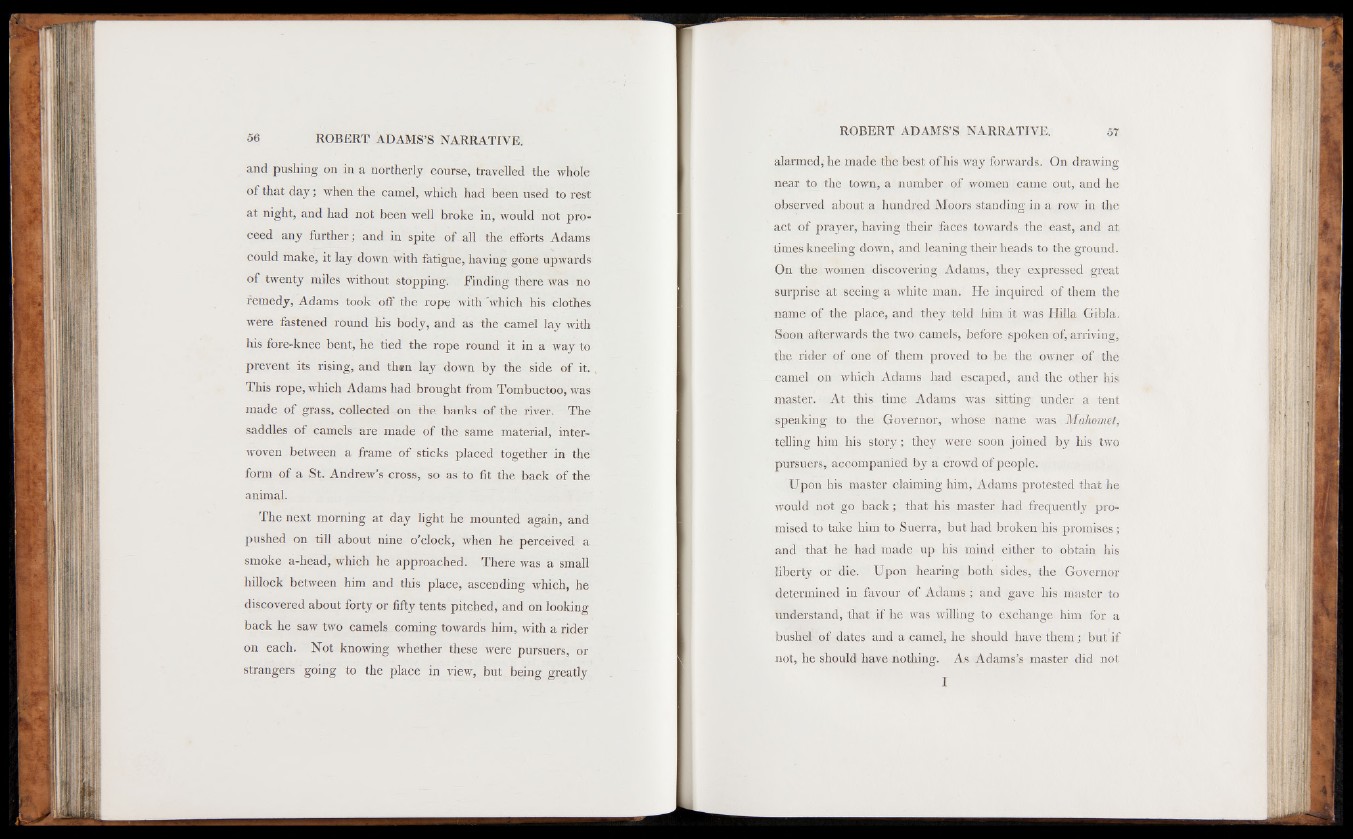
and pushing on in a northerly course, travelled the whole
of that day; when the camel, which had been used to rest
at night, and had not been well broke in, would not proceed
any further; and in spite of all the efforts Adams
could make, it lay down with fatigue, having gone upwards
of twenty miles without stopping. Finding there was no
remedy, Adams took off the rope with 'which his clothes
were fastened round his body, and as the camel lay with
his fore-knee bent, he tied the rope round it in a way to
prevent its rising, and then lay down by the side of it.
This rope, which Adams had brought from Tombuctoo, was
made of grass, collected on the banks of the river. The
saddles of camels are made of the same material, interwoven
between a frame of sticks placed together in the
form of a St. Andrew’s cross, so as to fit the back of the
animal.
The next morning at day light he mounted again, and
pushed on till about nine o’clock, when he perceived a
smoke a-head, which he approached. There was a small
hillock between him and this place, ascending which, he
discovered about forty or fifty tents pitched, and on looking
back he saw two camels coming towards him, with a rider
on each. Not knowing whether these were pursuers, or
strangers going to the place in view, but being greatly
ROBERT ADAMS’S NARRATIVE. 57
alarmed, he made the best of his way forwards. On drawing
near to the town, a number of women came out, and he
observed about a hundred Moors standing in a row in the
act of prayer, having their faces towards the east, and at
times kneeling down, and leaning their heads to the ground.
On the women discovering Adams, they expressed great
surprise at seeing a white man. He inquired of them the
name of the place, and they told him it was Hilla Gibla,
Soon afterwards the two camels, before spoken of, arriving,
the rider of one of them proved to be the owner of the
camel on which Adams had escaped, and the other his
master. At this time Adams was sitting under a tent
speaking to the Governor, whose name was Mahomets
telling him his story; they were soon joined by his two
pursuers, accompanied by a crowd of people.
Upon his master claiming him, Adams protested that he
would not go back; that his master had frequently promised
to take him to Suerra, but had broken his promises;
and that he had made up his mind either to obtain his
liberty or die. Upon hearing both sides, the Governor
determined in favour of Adams; and gave his master to
understand, that if he was willing to exchange him for a
bushel of dates and a camel, he should have them; but if
not, he should have nothing. As Adams’s master did not
I